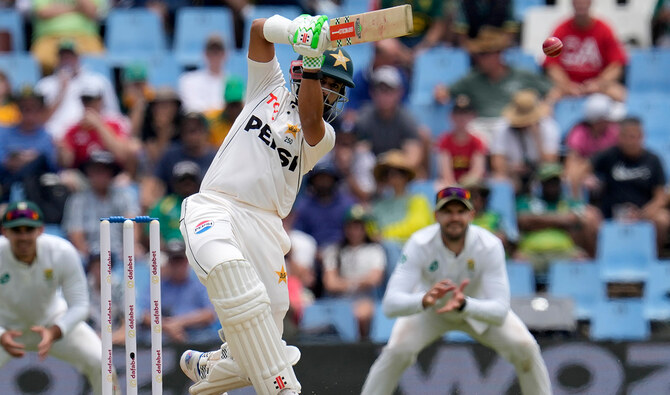It would have been a sweeter win had it happened in 1959 or 1962. Or even 1968.
But it would take a while longer.
In 1987, at the age of 62, Paul Newman won his one and only Oscar for Best Actor — on his seventh attempt and for his role in “The Colour of Money.”
Not in “The Hustler.” Not in “Cat on a Hot Tin Roof.” And not in the peerless “Cool Hand Luke.”
No doubt, Newman was still a formidable actor, and he would go on to be nominated two more times, once for a supporting role.
But it felt a touch too little, too late. A year after winning an Academy Honorary Award, which is never an encouraging sign, this award felt even more valedictory.
Above all, his greatness was in no way enhanced by this award.
And so, obviously, to Lionel Messi.
It’s one of football’s most tedious debates that only in winning an international title can he be considered the greatest player of all time. Win a cup with Argentina, Leo, or you’ll forever remain in Diego Maradona’s shadow. Or worse, Cristiano Ronaldo’s.
Messi’s well-documented tragi-comedies with Argentina are the stuff of legend and no little gloating by his critics. His time has passed, we’ve been assured.
But while the world has been preoccupied with the mesmerizing Euro 2020, Messi and Argentina are just one match away from claiming their first Copa America win since 1993. Beat hosts Brazil in Sunday morning’s final and, in many people’s eyes, Messi will, overnight, suddenly become worthy of the title of greatest footballer of all time.
For those of us on the other side of the world, the timing of the Copa America matches couldn’t be more inconvenient. But while most fans have slept through it, Messi and Argentina have inched their way toward what would be an unexpected triumph.
The symbolism of a win, for many, will reignite the pointless debates. But just where would it rank in among Messi’s achievements?
International football trophies are not handed out like Oscars of course, but winning this sleepy tournament, as much as it will mean to a man desperately coveting a title with his country, will have a bit of a lifetime achievement award feel to it. A bit “The Color of Money.”
The truth is, of course, that Messi does not need to win this Copa to validate his greatness, just as he did not need to win the 2014 World Cup or the 2015 and 2016 Copa America titles, which were both lost on penalties to Chile.
Perhaps a more appropriate comparison to an Oscar as a barometer for individual greatness would be the Ballon d’Or, of which Messi has just the five. But that’s not good enough for some people.
How about the four Champions League medals, 10 La Liga titles, seven Cop del Rey wins, and absurd goal records?
Why deeds in summer international football should outweigh his weekly acts of the unimaginable remains unexplained by football’s very own flat-earthers.
But while winning the Copa America 2021 couldn’t possibly make up for losing the 2014 World Cup, try telling that to 34-year-old Argentina captain, who has said he’d give up all his Ballon d’Or awards for a single trophy with his country.
Something strange has happened at Copa America 2021. Messi, often seemingly carrying the weight of the world, not to mention his other 10 teammates, on his shoulders, looks happy playing for Argentina.
There have been four goals and five assists and, against Ecuador in the quarterfinal, two stunning passes and a trademark freekick goal.
Seven years on from the disappointment of losing the World Cup final to Germany at the Maracana in Rio, Messi looks determined to right that wrong.
Just before Maxi Rodriguez scored Argentina’s winning penalty against the Netherlands to take Argentina to that 2014 World Cup final, television footage showed Messi drifting alone, nervously, seemingly lost in his own world, separated from the rest of his teammates.
In the early hours of Wednesday, as Argentina won the semi-final penalty shootout against Colombia, Messi stood front and center — furious, encouraging and celebrating in a way you’d more associate with Georgio Chiellini or Sergio Ramos.
This was a reborn Messi for Argentina, one that we thought we’d never see again.
It helps that, for once, some of his teammates have stepped up, rather than been struck by the paralysis of playing alongside him. And none more so than the hero of the shootout win over Colombia, the extraordinary Emi Martinez.
Messi’s joyful reaction at the end, as he sought out the mobbed Aston Villa goalkeeper, was touching even for a player who has seen and done it all before. Or, almost all.
Perhaps it was the realization that this, alongside Qatar 2022, really is it for him at the international level, and perhaps the last chance to get the Maradona monkey off his back.
It should not have come to this, of course, and maybe Messi’s international career will always leave many questions unanswered.
Why should the profligacy of Gonzalo Higuain, Rodrigo Palacio and others in the 2014 World Cup final have any bearing on Messi’s greatness? Would he be any more of a player had the seemingly jinxed Higuain scored in stoppage time of the 2015 Copa America final?
And how does the result of Sunday’s final retrospectively shape how Messi’s career is conceived? If you are, somehow, still not convinced by his otherworldliness, of his sheer genius, would a Copa America win be some kind of deus ex machina for his legacy?
If you don’t already think he’s the greatest player of all time then, clearly, you never will.
Messi doesn’t need to win the Copa America to prove anything to anyone.
But it would be sweet.
























